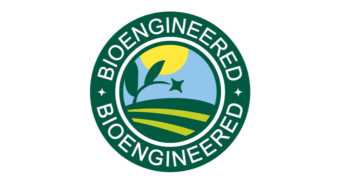
Answer:
What is a California Prop 65 warning?
A warning, known as the Prop 65 warning, is legally required by the state of California on dietary supplements and other products sold in that state that expose you to levels of one or more chemicals that may cause cancer or reproductive harm. The list of chemicals that require a warning includes hundreds of compounds, including lead, cadmium, arsenic, and mercury. Some companies that sell products nationally may include a Prop 65 warning even on products sold outside of California.
The California law (known as Proposition 65, or the Safe Drinking Water and Toxic Enforcement Act of 1986) does not currently require businesses to say exactly which compound is the reason for the warning, which can leave a consumer confused. To help remedy this, the law was amended in 2024 (California OEHHA 2024) to require companies to identify at least one chemical for which the warning is being issued on a supplement. However, companies have until January 2028 to include this additional information in the warnings.
ConsumerLab.com has found that manufacturers are sometimes not aware that their product exceeds a Prop 65 limit and do not include a warning on the label, even when the product is sold in California.
Does ConsumerLab use Prop 65 limits?
California's limits are strict and, in many cases, go beyond any federal limit — particularly as the federal government has not established limits on contaminants in supplements, leaving that decision up to each manufacturer.
ConsumerLab.com generally applies the Prop 65 limits when testing for contaminants in supplements and foods. In ConsumerLab.com's experience testing thousands of supplements, it has identified many which exceed the California limit for the heavy metals lead, cadmium, and or arsenic which can occur in plant-based ingredients, such as herbs, as well as in minerals. Often these ingredients are not the primary ingredient in a product, but are part of a blend or proprietary formula added to enhance the product or distinguish it in the marketplace.
ConsumerLab tests have also revealed many foods, including certain cocoa and dark chocolate products, whole and ground flaxseeds, and sunflower seeds and butters, exceed strict the California limits for one or more contaminants (see which foods and supplements tested by ConsumerLab frequently contain heavy metals.) Additional allowances beyond the strict Prop 65 limits have been permitted by California courts for categories of products in which heavy metals are inherent, and ConsumerLab provides similar allowances (see How Products Are Evaluated).Prop 65 warnings as legal protection?
In an effort to protect themselves from potential lawsuits in California for not displaying a required warning, some companies may affix the Prop 65 warning labels to products -- as well as to website pages about products -- regardless of whether or not the specific products exceed Prop 65 limits.
If you see a warning label of this type, you may want to check ConsumerLab.com's website to see if there is information about the product. You may also want to contact the manufacturer or distributor to learn the reason for the warning.
Join today to unlock all member benefits including full access to all CL Answers and over 1,400 reviews.
Join NowAlready a member? Sign In Here.
Join now at www.consumerlab.com/join/











James
February 04, 2025There is now a prop 65 warning on literally everything sold on Amazon, even kindle ebooks! AFAIK, new regulations stipulate that products now require the P65 label if any packaging material or printed inserts or label has any of the covered chemicals. Given the ubiquity of the warning I get the impression CL's statement about companies affixing the label to everything they sell as mere legal protection rather than an actual warning is even more true now.
Reply to this post…
Suzanne1311
July 10, 2019I bought Jarrow beef bone powder and it made me tired all the time. Exhausted in fact. As soon as I stopped I was fine. I thought you should know.
Reply to this post…
JARKKO1306
September 22, 2018I am surprised some companies are either lazy or do not want to tell the whole truth, when they add text "prop 65" hidden in small print on bottles, yes only those 4 letters and 2 numbers without any explanation.
It would be much more consumer friendly to put a small paper inside every supplement bottle with a certificate of analysis for that batch, with contact information to a 3rd party lab, with comparisons to federal limits or Pharmacopeia limits.
Or a QR bar code that leads to a 3rd party website with certificate of analysis for that batch.
scott1308
February 20, 2019There are 900+ chemicals listed in California's Prop 65 rules it would be impossible and cost prohibitive to check a product for all of them. Further, the standards are ridiculous and again, nearly impossible to prove the amount of exposure exceeds what is laid out. So to avoid being sued by the bounty hunter law firms of which themselves are a complete racket, companies label their product with the overall label allowed by California. Take a walk though Disney Land in CA. You can't walk 20 feet without seeing another Prop 65 warning sign. Sawdust is on the list. Aspirin is on the list, can go on and on....
Nancy1310
January 12, 2020This is why I voted against this proposition (and others like it). This warning is on every door to every store. It’s less helpful and less noticeable than “exit” signs.
It may even be on every building due to simple CYA. An office building may have new carpeting or occasionally need to unclog a drain with Draino so they put up the warning.
This warning has absolutely zero effect within CA. If I were selling something, I would put the warning on my product just in case. Even if I had no reason to think my product had any cancer causing properties, I don’t want to have every item certified. So... just in case, I will indemnify myself.
Michael1307
June 25, 2021Thanks, Nancy18843. That's my impression, too.
Reply to this post…